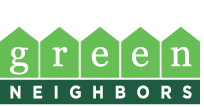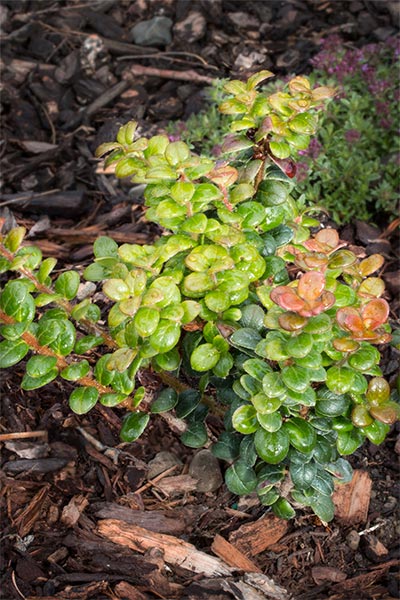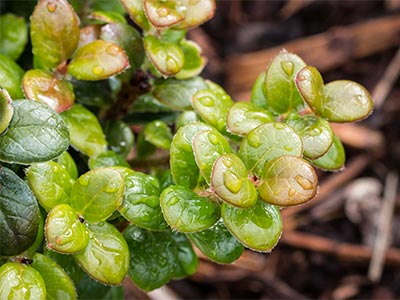Whortleberry
- Scientific Name: Vaccinium nummularia
- Garden: Edibles and Herbs Garden
- Plant Type: Shrub
- Evergreen/Deciduous: Deciduous
- Sun/Shade Exposure: Part shade
- Moisture Requirements: Moist, Well-Drained
Plant Information
Branches are tipped with copper new leaves that turn to dark glossy green during summer. Pink bell flowers in spring turn to black berries in fall.
Grows 8-12” tall x 12-36" wide. Part shade, Hardy Zone 7, 0-10f.
Culture: Vaccinium thrive in acidic soil with a pH of 4.5-5.5 which is commonly found in Portland and on the rainy side of the Cascade Mountains. Most would appreciate better soil drainage than is typical in Portland, so adding mulch to the garden bed yearly will help. Fertilize with cottonseed meal or another acidic fertilizer to support fruiting.
Water enough to keep evenly moist while plants are getting established and rooting into a new location. Back off watering once plants are established, except for in extremely hot summer events. Water blueberries regularly while fruit is ripening. Over watered plants and waterlogged soil both cause roots to decay and cause plant death.
Light: Plants grown for fruit production need at least 6 hours of sun a day. Several Vaccinium species such as V. ovatum and V. parviflora, will grow well under lower light conditions, but it will inhibit fruit production.
Problems: Vaccinium grown for fruit, Blueberries for example, are often a target for berry-loving birds. Bird netting, scare-away tape or fake predatory critters are commonly used to protect the fruit.
Data Source
http://www.portlandnursery.comPlant Photos





